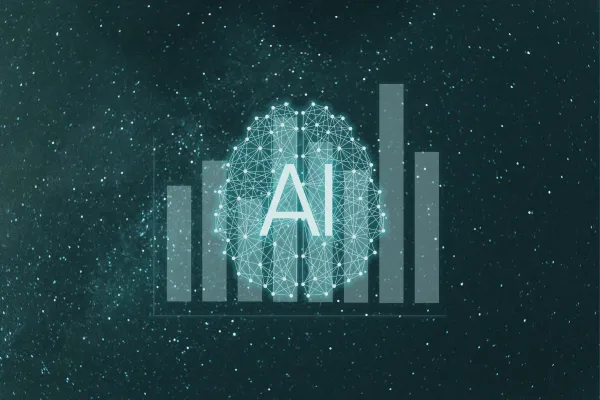Leads Up AI Blog
Welcome to the Leads Up AI Blog, We're glad you're here!

The Power of Systemized Automation in Marketing: An AI Perspective.
The Power of Systemized Automation in Marketing: An AI Perspective.
Introduction to Systemized Automation in Marketing
In the rapidly evolving world of marketing, systemized automation has emerged as a game-changer. It is a powerful tool that utilizes artificial intelligence to streamline and enhance marketing strategies. This technology allows businesses to automate repetitive tasks, improve efficiency, and deliver a more personalized experience to customers. From sending out targeted emails to analyzing customer data, systemized automation in marketing is transforming the way businesses interact with their audience. It's not just about saving time and effort, it's about leveraging AI to make smarter, data-driven decisions that drive growth and success.
The Evolution of AI in Marketing Automation
The evolution of AI in marketing automation has revolutionized the way businesses interact with their customers. Initially, marketing automation was limited to sending out automated emails or scheduling social media posts. However, with the advent of AI, it has taken a giant leap forward. Now, AI can analyze customer behavior, predict future trends, and create personalized marketing strategies. It can even engage with customers through chatbots, providing instant customer service. This not only saves time and resources but also enhances customer experience. Hence, the integration of AI in marketing automation has empowered businesses to streamline their marketing efforts, making them more efficient and effective.

Understanding the Power of Systemized Automation
Understanding the power of systemized automation is crucial in today's fast-paced marketing world. It involves using advanced technology, like Artificial Intelligence (AI), to automate repetitive tasks, thereby increasing efficiency and accuracy. The core benefit of systemized automation is that it frees up your time, allowing you to focus on other critical aspects of your business. From sending personalized emails to scheduling social media posts, automation can handle it all. It not only simplifies your workload but also provides valuable insights to improve your marketing strategies. The power of systemized automation is truly a game-changer in the realm of marketing.
How AI Enhances Marketing Automation
AI significantly boosts marketing automation by providing personalized experiences to customers and predicting future trends. Through machine learning algorithms, AI can analyze vast amounts of data to understand customer behavior, preferences, and potential buying patterns. This information can then be used to automate marketing strategies such as email campaigns, content recommendations, and ad targeting, ensuring that each customer receives the most relevant marketing materials. Moreover, AI can also predict future consumer trends, allowing businesses to stay ahead of the curve and adjust their marketing strategies accordingly. In essence, AI makes marketing automation more efficient, precise, and customer-focused.
Benefits of Integrating AI into Marketing Automation
Integrating AI into marketing automation offers numerous benefits that can significantly enhance your marketing efforts. Firstly, AI can process and analyze large amounts of data much faster and more accurately than humans, enabling you to make data-driven decisions quickly. It can also predict customer behavior and trends, helping you to tailor your marketing strategies effectively. Furthermore, AI can automate repetitive tasks, freeing up your time to focus on more creative aspects of marketing. It also enhances personalization, allowing you to create highly targeted campaigns that resonate with your audience. This not only improves customer engagement but also boosts conversion rates.
Case Studies: Successful Implementations of AI in Marketing Automation
In our exploration of AI in marketing automation, several case studies stand out for their successful implementation. For instance, Netflix uses AI to analyze viewer preferences and behavior, enabling personalized content recommendations. This not only enhances user experience but also increases viewer engagement and subscription rates. Similarly, Harley-Davidson employed AI in its marketing strategy, resulting in a 2,930% increase in sales leads. By utilizing an AI-powered marketing automation system, they were able to analyze customer data, track potential leads, and deliver personalized marketing messages. These examples illustrate how integrating AI into marketing automation can significantly improve business performance and customer satisfaction.
Challenges in Implementing AI-Powered Marketing Automation Systems
Implementing AI-powered marketing automation systems can bring substantial benefits, but it's not without its challenges. One of the main hurdles is the integration of AI technology with existing systems, which can be complex and time-consuming. Additionally, there's the challenge of data management. AI systems require a large volume of high-quality data to function effectively, which can be difficult to gather and manage. Moreover, there's the need for skilled professionals who can understand and operate these AI systems. This expertise is not always readily available, leading to another obstacle. Lastly, convincing stakeholders about the return on investment for such systems can also be a tough task. Despite these challenges, the potential benefits of AI in marketing automation are significant, making it worth the effort.
Future Trends: The Future of AI in Marketing Automation
The future of AI in marketing automation is slated to be transformative. With advancements in technology, AI is set to revolutionize the way marketers strategize and execute their plans. AI can analyze vast amounts of data quickly, providing insights and predictions that are beyond human capacity. This will allow marketers to personalize their campaigns at an unprecedented level, enhancing customer experience and boosting engagement. Furthermore, AI will automate repetitive tasks, freeing up time for marketers to focus on more strategic aspects. Therefore, the integration of AI in marketing automation signifies promising future trends, paving the way for more efficient and effective marketing operations.
How to Successfully Implement AI-Powered Marketing Automation in Your Business
To successfully implement AI-powered marketing automation in your business, start by identifying the repetitive, time-consuming tasks in your marketing strategy. These could include email marketing, social media posting, or ad campaign management. With a clear understanding of what needs automation, you can then explore various AI tools designed for these tasks. Consider tools like chatbots for customer service, predictive analytics for forecasting trends, or AI-enhanced CRM systems for personalized marketing. Once you've chosen the right tools, integrate them into your existing systems and train your team to use them effectively. It's also crucial to continuously analyze the results and make necessary adjustments. Remember, the goal is to enhance your marketing efforts and not to replace the human touch with automation.

Conclusion: The Unstoppable Power of Systemized Automation in Marketing.
In conclusion, the power of systemized automation in marketing, particularly when enhanced by AI, is an unstoppable force in today's digital world. It not only streamlines and optimizes marketing processes but also provides insightful data for strategic decision-making. It allows businesses to reach their target audience more effectively, save time and resources, and boost their overall productivity. In essence, embracing this advanced technology is no longer an option but a necessity for businesses that aim to stay competitive and relevant in the ever-evolving market landscape.




